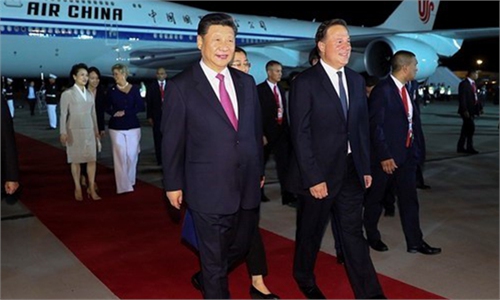Apple cuts new iPhone prices in China amid fierce competition from rising Chinese brands

iPhone13
After nearly a year of rumors and leaks, Apple finally announced its highly anticipated iPhone 13 lineup in the early hours of Wednesday Beijing time. The arrival of the new iPhone soon topped China's social media searches and led to heated discussions among Chinese netizens from its latest upgrades, prices to the packaging and chargers, indicating Apple's huge popularity in the Chinese market despite China-US tensions.
However, instead of new features and designs, Chinese fans appeared to be most impressed with Apple's move to launch the new iPhones at much lower prices, which underlined the increasingly fierce competition the US company faces from Chinese brands that are quickly catching up in terms of technological innovation. While the move might encourage sales, it could also hit Apple's image as the top premium smartphone brand, analysts said.
Among Apple-related topics, the hash tag regarding iPhone 13 prices has quickly became a trending topic on China's Twitter-like social media platform Sina Weibo on Wednesday morning with 1.2 billion views and 283,000 comments as of press time.
During the virtual event, Apple announced the four new models: the iPhone 13, 13 Mini, 13 Pro and 13 Pro Max with a lower launching price for the Chinese market compared with iPhone 12 series released last year. For instance, the iPhone 13 starts at 5,999 yuan ($932.84) for 128GB in China, 800 yuan cheaper than the launching price of iPhone 12 with the same storage capacity, which is being viewed as a good reason for many consumers to upgrade their phones.
A Shanghai-based consumer surnamed Wang has already set her alarm clock to pre-order the new model, which starts from 8 pm Friday. "I have been waiting for the phone for a year. The lower price is a great offer. Compared with previous years, iPhone is no longer considered a luxurious item given the rising incomes of Chinese consumers," Wang told the Global Times on Wednesday.
The price reduction of the iPhone13 series comes in sharp contrast with a predicted price hike due to the shortage of components and other supply chain disruptions from the COVID-19 pandemic. The latest move indicates that the US brand is adjusting its marketing strategy to embrace a wider Chinese market with a modest and friendly attitude, experts said.
"The price reduction showed that Apple needs to adjust the price and embrace more consumer groups amid an intensified market competition in China. It is expected that Apple will definitely become cheaper in order to compete with domestic Android phones in the future," Liu Dingding, a veteran industry analyst told the Global Times on Wednesday.
A weaker performance in European and US markets due to the impact of COVID-19 have also made the Chinese market something it cannot afford to lose, experts said.
"Due to the scale of the Chinese consumption market, it has to reduce price to increase sales in Chinese market and make up for losses in other markets," Liu said.
Shortly after the launch of iPhone 12, Apple's Greater China revenue came in at $21.31 billion in the fourth quarter of 2020, up 57 percent from 2019, the highest revenue for a single quarter in Greater China in Apple's history, according to Apple's quarterly financial report ends December 26.
Apple's price adjustment shows that the Chinese market is an important source of profits for US companies, thanks to China's large market size, its 400 million middle-income consumers and increasing emphasis on high-quality purchases, Gao Lingyun, an expert at the Chinese Academy of Social Sciences in Beijing.
"Even if relations between the world's two largest economies remained frayed, trade relations will not deteriorate in the future," Gao told the Global Times on Wednesday.
Bilateral trade grew 45.7 percent year-on-year to $340.8 billion in the first six months of 2021, faster than the growth paces for China's trade with ASEAN (up 38.2 percent) or the EU (up 37 percent), statistics from the General Administration of Customs (GAC) showed in July.
"The economic and trade prospects between China and the US are facing headwinds. Tension and contradictions will remain but the two counties are still moving forward due to their close economic and trade ties," Gao said.



